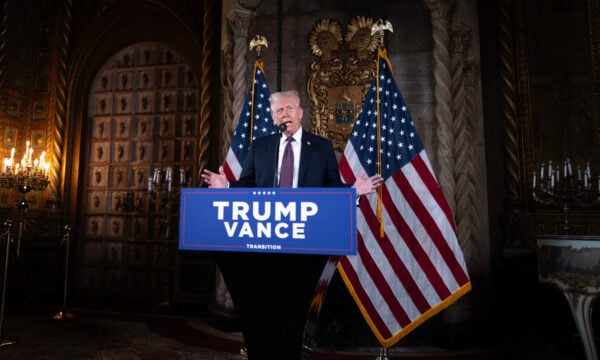How Is the Economy Doing Right Now?
With the government shutdown over, data releases are slowly trickling in.

Many, or all, of the products featured on this page are from our advertising partners who compensate us when you take certain actions on our website or click to take an action on their website. However, this does not influence our evaluations. Our opinions are our own. Here is a list of our partners and here's how we make money.
Updated on Feb. 6.
What NerdWallet's economist is watching in the week ahead
Here’s what NerdWallet’s senior economist Elizabeth Renter will be watching for in economic news and data for the week of Feb. 9.
I’ve been thinking a lot lately about the impact of technology on consumer economic sentiment. When you can’t escape the headlines — and perhaps even more impactful, you can’t escape how everyone online is feeling about the headlines — surely it impacts how you perceive the economy and your place within it.
Even if we were still only getting our news over the morning paper and evening broadcast, I think this would be a time for economic discomfort. Unfavorable worker conditions in the labor market, tumultuous economic policies and general domestic chaos would be hard to ignore, regardless of how we hear about them. But when information is coming at you from the moment you wake until you wind it down for the night, it must impact your view of current conditions.
There isn’t a ton of academic research on this, as it’s a topic unfolding before our eyes. But there is some that connects the onslaught of political and economic news and information (particularly of the negative variety) to worsened sentiment (one roundup here, if you’re interested).
This isn’t to say everyone should feel good about the economy right now. Households are increasingly less insulated, both inflation and interest rates remain a bit higher than comfortable, housing is expensive and the labor market is a chilly place. But I certainly believe the baseline discomfort is likely magnified by the onslaught of information.
Upcoming data releases:
- Mon., Feb. 9: Survey of Consumer Expectations, NY Fed - Last month, the average risk of being late on a debt payment exceeded 15% (previously not seen since spring 2020). As a gauge of household financial security, I’ll be looking at this data point first.
- Tues., Feb. 10:
- Retail trade, Census - This is December’s retail trade data, and consumers went into this month spending like gangbusters after relatively flat growth in September and October.
- Household Debt and Credit, NY Fed - This quarterly release always has a lot to say about household balance sheets. I’ve been keeping an eye on delinquency flows, however, as the rate of credit card accounts moving into serious delinquency is pacing at the highest since the Great Recession.
- Wed., Feb. 11: Employment Situation (“jobs report”), BLS - At long last. The delayed jobs report will feature benchmark revisions, so expect some murky interpretations across the internet.
- Fri., Feb. 13: Consumer Price Index, BLS - Inflation remains above target, but not where I’d typically characterize it as “high.” That said, we haven’t seen low inflation for several years now, so this slight elevation is still quite uncomfortable.
ICYMI: Survey: Dating Dealbreakers - The biggest red flag when it comes to money and dating: Talking about money a lot. Nearly half (47%) of Americans say this is a red flag financial behavior in a partner.
Fed independence at risk amid DOJ subpoena
On Jan. 9, the Department of Justice subpoenaed the Federal Reserve, escalating tensions between President Trump and Fed Chair Jerome Powell. In a video released on Jan. 11, Powell warned that the move threatens the Fed’s ability to set rates independent of the federal government. Trump denies his involvement with the DOJ’s action.
Elizabeth Renter, senior economist at NerdWallet, said that central banks that succumb to political pressure undermine independence and credibility, which can drive higher inflation and threaten long-term economic stability.
Read more here.
The state of the U.S. economy is strong despite inflation remaining elevated. The economy is expanding again after a dip in Q1, the labor market is stable and inflation is below its peak. The Federal Reserve looks at several economic indicators — along with the stock market — to form a better picture of the economy and make decisions on interest rates.
» Stay informed: Check out NerdWallet's news hub for all the latest.
On this page
- What NerdWallet's economist is watching in the week ahead
- Fed independence at risk amid DOJ subpoena
- Is the U.S. in a recession?
- Is the U.S. economy growing?
- What is the U.S. unemployment rate?
- How fast are wages growing?
- Is inflation going down?
- What’s happening with gas prices?
- What’s going on with tariffs?
- How much is the U.S. dollar worth now?
- What is the current U.S. trade deficit?
- How much does the U.S. import and export?
- Rent inflation
- When will interest rates go down?
- Consumer confidence in the economy
- How’s the stock market doing?
- Latest mortgage interest rates
Is the U.S. in a recession?
The United States is not currently in a recession, but the impacts of new tariffs and a looming trade war have unsettled financial markets and raised fears of an economic downturn. Even President Donald Trump has said a recession is possible. For ongoing updates on recession news, see: Are we in a recession?
Is the U.S. economy growing?
Q3 2025 GDP: +4.3%
The U.S. economy has shown steady growth since it dropped to unprecedented levels during the second quarter of 2020 due to the pandemic — and then rebounded almost as quickly. A year later, in the second quarter of 2021, the rate of annual growth hit a high not seen since the 1950s.
But in the first quarter of 2025, growth declined for the first time in nearly three years, primarily due to an increase in imports — a result of businesses stocking up on goods before tariffs began. The economy moved back into positive territory in the second quarter, according to an advance estimate released on July 30, attributed to a drop in imports and an increase in consumer spending. Growth continued in the third quarter.
Gross Domestic Product (GDP) is the market value — in current dollars — of all goods and services produced within the United States in a given period. The data that shows GDP adjusted for inflation is called Real GDP. All GDP changes are expressed on an annualized basis and reports are released quarterly by the Bureau of Economic Analysis.
Why it matters: GDP is a barometer for the health of the country. When it’s growing, that’s a good sign: consumers are spending, businesses are producing and jobs are being created. But when the GDP shrinks, or contracts, it signals that the economy may be slowing. If it contracts for two quarters, that can be considered a recession.
» MORE: GDP Report
What is the U.S. unemployment rate?
December unemployment rate: 4.4%
The U.S. unemployment rate is the share of unemployed people as a percentage of the overall labor force. Unemployed people are those who are actively seeking work. The labor force doesn’t include the entire population; it’s just the number of people who are employed plus those who are unemployed but looking for jobs.
The unemployment rate has topped 4% since May 2024.
Why it matters: Unemployment shows how the labor market is doing. When it’s low, people are finding work and feeling confident about job-hopping. When the rate is elevated, it shows the economy could be struggling, with fewer positions available for jobseekers.
How fast are wages growing?
September wage growth rate: 4.1%
Wage growth is moderating from what it was at this time in 2024 and is much lower than its peak in 2022. Still, the most recent data from the Federal Reserve Bank of Atlanta shows that annual growth is pacing much faster than it did in 2020.
Why it matters: Wage growth shows how workers are doing. If wages are rising, it means the job market is strong and employers are competing for workers. But when inflation rises faster than wages, then raises won’t stretch as far and consumers lose purchasing power.
Below is the three-month moving average of median hourly wages over the last decade.
Is inflation going down?
Inflation measures the rate of price increases, on an annual basis. The Federal Reserve is targeting a 2% inflation rate.
Why it matters: The Federal Reserve targets a 2% inflation rate. Inflation reports like the consumer price index (CPI) and personal consumption expenditure (PCE) index show how fast prices are rising. When inflation rates spike and wages don’t increase as strongly, it means it could be harder for households to stay afloat.
Consumer price index (CPI)
December CPI index: 2.7%
December core CPI index: 2.6%
The current inflation rate is typically a reflection of the consumer price index (CPI), which is released monthly by the Bureau of Labor Statistics. The CPI measures changes in prices that consumers pay for goods and services including food, gas and rent. The core measure of the consumer price index excludes two volatile factors: food and energy.
Personal consumption expenditure (PCE) index
November PCE inflation rate: 2.8%
November core PCE rate: 2.8%
The Federal Reserve’s preferred measure of inflation is the core personal consumption expenditure (core PCE) index, which is released monthly by the Bureau of Economic Analysis. The PCE follows the goods and services consumers buy and the price they pay for them. It also tracks changes in spending habits as prices fluctuate.
» MORE: What is the PCE?
What’s happening with gas prices?
Oil prices have dropped to their lowest levels since 2021. That’s unusual since oil prices usually spike during spring and stay elevated during the summer. And yet, drivers are paying less right now than they were a year ago. There are two big reasons for the price dip: tariffs lowering demand and global output increasing.
Why it matters: High gas prices mean consumers have less money available for other spending, which can slow the economy. Higher fuel prices also increase costs for businesses that rely on shipping, which can pass higher costs to consumers and fuel inflation.
» MORE: Gas prices in the U.S.
Here’s a snapshot of average U.S. gas prices right now.
What’s going on with tariffs?
Since February, Trump has announced sweeping tariffs affecting virtually all U.S. trade partners. For details, see:
How much is the U.S. dollar worth now?
The dollar index measures how the dollar compares to other currencies. The U.S. dollar is usually considered a safe haven, especially during times of market volatility and economic uncertainty. But in 2025, the value of the dollar is falling as investors sell off U.S. assets, largely due to uncertainty tied to Trump’s protectionist policies and broad sweeping tariffs.
Why it matters: The strength of the U.S. dollar shows its global demand. A strong dollar makes imported goods and services cheaper for U.S. consumers and businesses. It also eases inflationary pressure in the U.S. But a strong dollar could reduce demand for imports from U.S. businesses, which could slow growth.
What is the current U.S. trade deficit?
U.S. trade deficit in November: $56.8 billion, compared to $29.2 billion in October.
The U.S. has run a trade deficit for decades, but it has generally decreased since tariffs went into effect — although November saw a sharp rebound in imported goods and a decline in exports. BEA data for November shows a goods deficit of $86.9 billion (up $27.9 billion from October) and a services surplus of $30.1 billion (up $0.3 billion from October).
Source: U.S. Census Bureau and the Bureau of Economic Analysis (BEA).
» MORE: What is the U.S. trade deficit?
How much does the U.S. import and export?
Imports are goods that one country purchases from another country, while exports are goods that one country sells to another country. The latest U.S. Bureau of Economic Analysis (BEA) data shows:
Imports in November 2025: $272.5 billion — $16.8 billion more than October.
Exports in November 2025: $185.6 billion — $11.1 billion less than October.
Rent inflation
Rent costs are a significant factor driving inflation. That’s because rent is included within the shelter price index and shelter comprises the biggest segment of the CPI. The rent portion of the CPI has outpaced overall inflation for decades.
However, there’s a lag in how rent data is reflected in the CPI, which means rental shifts — up or down — won’t immediately be reflected in the report. The lag is due to the cycle of lease renewals. Companies that track rental prices, like the housing website Zillow, show that rent increases have slowed down for nearly a year, but that slowdown has yet to show up in the CPI report.
Why it matters: When rent rises faster than wage growth, it increases living costs, which means households have less money available for other expenses. High prices also shrink the affordable options available in the rental market.
» MORE: Rental market trends in the U.S.
When will interest rates go down?
Federal funds rate: 3.75% to 4.00%
The federal funds rate, also known as the Fed rate, is the interest rate that U.S. banks pay each other to borrow or loan money overnight.
The fed rate is set by the Federal Open Markets Committee (FOMC), which is the monetary policymaking arm of the nation’s central bank known as the Federal Reserve. At the FOMC’s eight scheduled meetings each year, it takes action on the federal funds rate. That means it will hike, hold or lower rates, depending on economic conditions.
After a year of paused interest rates, the Fed made rate cuts at its September, November and December 2024 meetings. The FOMC has held rates steady at the majority of its 2025 meetings before making its first cut at its September meeting. A second rate cut followed at its October meeting.
Why it matters: The federal funds rate affects interest rates on consumer lending products like credit cards and mortgages. When the rate rises, borrowing becomes more expensive. That can lead to tighter lending standards, which means consumers and businesses tend to borrow less.
» MORE: What is the federal funds rate?
Consumer confidence in the economy
Consumer confidence — or sentiment — is an index that reflects people’s perceptions about the economy in the short-term and the outlook for the future. There are two main consumer sentiment indexes: the University of Michigan’s Index of Consumer Sentiment and The Conference Board’s Consumer Confidence Index.
Why it matters: Consumer sentiment shows how people feel about the economy and economists consider it a useful tool in predicting economic changes. How people feel about the economy can shape their behavior: If consumers are feeling optimistic, they’re more likely to spend money. But if their feelings are negative, they may pull back spending, which can slow economic growth.
The University of Michigan’s Index of Consumer Sentiment
The first reading for February from the University of Michigan, released on Feb. 6, shows:
- The Index of Consumer Sentiment registered at 57.3 for February, up from 56.4 for January.
- Current Economic Conditions registered at 58.3 for February, up from 55.4 for January.
- The Index of Consumer Expectations registered at 56.6 for February, down slightly from 57 for January.
The Conference Board’s Consumer Confidence Index
Conference Board data for January, released on Jan. 27 shows:
- The Conference Board’s Consumer Confidence Index fell 9.7 points to 84.5.
- The Present Situation Index went down by 9.9 points to 113.7.
- The Expectations Index fell by 9.5 points to 65.1.
How’s the stock market doing?
The health of the stock market is represented by major stock market indexes like the Dow Jones Industrial Average, S&P 500 or the NASDAQ 100. These indexes include broad sections of the stock market, but aren’t entirely exhaustive. That means the performance of these indexes represents the fluctuations in the entire market. So when the stock market goes up that means stock market indexes have gained value and vice versa.
Why it matters: The stock market reflects investor confidence in the economy. When stock prices rise, it means investors are feeling optimistic. When prices fall, it signals investors are uncertain or concerned about the economy. These stock fluctuations affect investments, retirement accounts, consumer confidence and business decisions.
» MORE: S&P 500 Index (SPX)
Data may be delayed and is for informational purposes only.
Latest mortgage interest rates
Mortgage rates change daily according to what’s happening in the economy.
NerdWallet’s daily mortgage rates below are calculated as an average of the annual percentage rate (APR) with the lowest points from a selection of major national mortgage lenders. The APR is based on the interest rate and indicates all of the costs of getting a loan including mortgage origination fees and discount points.
Why it matters: Mortgage rates affect housing affordability. When rates go up, so do monthly payments for buyers, which could make it harder to afford homes. For current homeowners, high rates may discourage them from selling, which can tighten the housing market and drive up home prices.
» MORE: Current mortgage interest rates
(Photo by Spencer Platt/Getty Images News via Getty Images)
Article sources
NerdWallet writers are subject matter authorities who use primary,
trustworthy sources to inform their work, including peer-reviewed
studies, government websites, academic research and interviews with
industry experts. All content is fact-checked for accuracy, timeliness
and relevance. You can learn more about NerdWallet's high
standards for journalism by reading our
editorial guidelines.
Related articles





